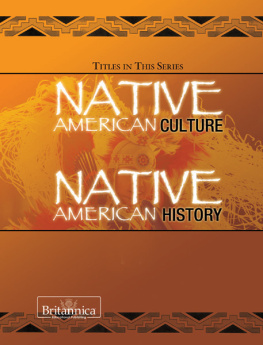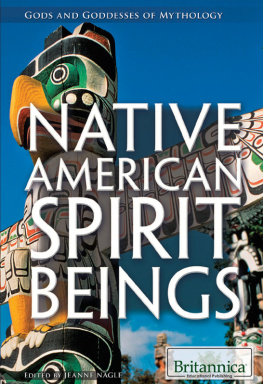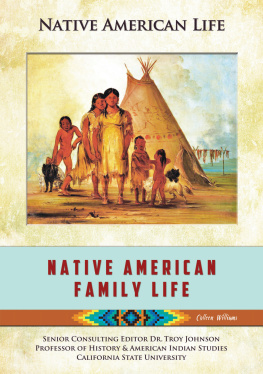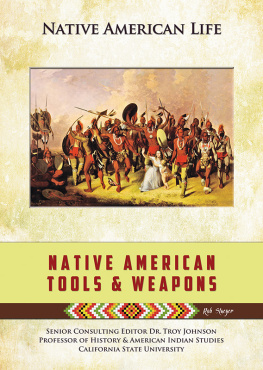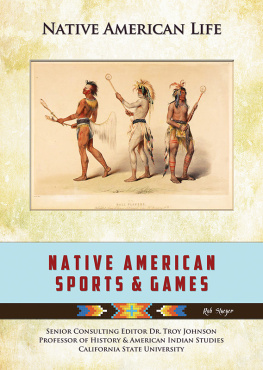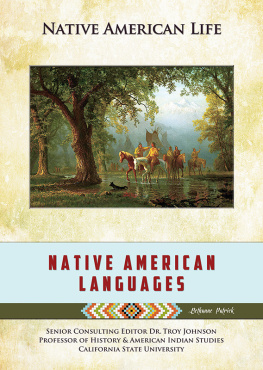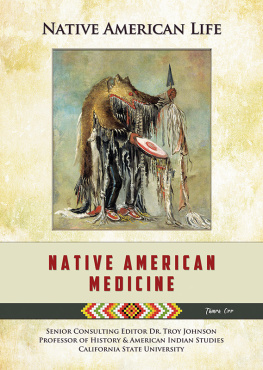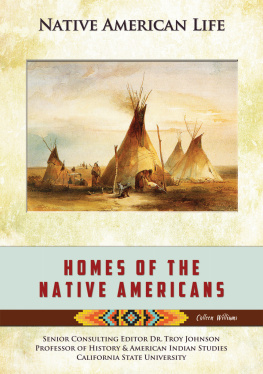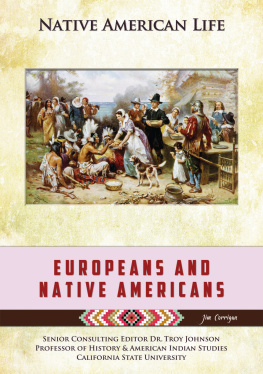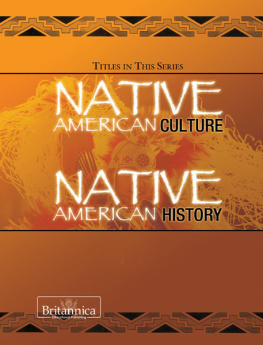NATIVE
FOODWAYS
SUNY series, Native Traces
Scott Richard Lyons, editor
NATIVE
FOODWAYS
Indigenous
North American
Religious Traditions
and Foods
Edited by
Michelene E. Pesantubbee
and
Michael J. Zogry
Published by State University of New York Press, Albany
2021 State University of New York
All rights reserved
Printed in the United States of America
No part of this book may be used or reproduced in any manner whatsoever without written permission. No part of this book may be stored in a retrieval system or transmitted in any form or by any means including electronic, electrostatic, magnetic tape, mechanical, photocopying, recording, or otherwise without the prior permission in writing of the publisher.
For information, contact State University of New York Press, Albany, NY
www.sunypress.edu
Library of Congress Cataloging-in-Publication Data
Names: Pesantubbee, Michelene E., 1953 editor. | Zogry, Michael J., 1966 editor.
Title: Native foodways : indigenous North American religious traditions and foods / [edited by] Michelene E. Pesantubbee, Michael J. Zogry.
Other titles: Native traces.
Description: Albany : State University of New York, [2021] | Series: SUNY series, native traces | Includes bibliographical references and index.
Identifiers: LCCN 2020045651 (print) | LCCN 2020045652 (ebook) | ISBN 9781438482613 (hardcover : alk. paper) | ISBN 9781438482637 (ebook)
Subjects: LCSH: Indians of North AmericaFood. | FoodNorth AmericaReligious aspects.
Classification: LCC E98.F7 N378 2021 (print) | LCC E98.F7 (ebook) | DDC 970.004/97dc23
LC record available at https://lccn.loc.gov/2020045651
LC ebook record available at https://lccn.loc.gov/2020045652
10 9 8 7 6 5 4 3 2 1
In Memory of Dr. Ins M. Talamantez
Contents
Michael J. Zogry
Andrea McComb Sanchez
Suzanne Crawford OBrien
Michael D. McNally
Lawrence W. Gross
David S. Walsh
Suzanne Crawford OBrien and Kimberly Wogahn
R. Alfred Vick
Dennis Kelley
Michelene E. Pesantubbee
Acknowledgments
The editors would like to thank our colleague Jace Weaver and Amanda Lanne-Camilli, the acquisitions editor at SUNY Press, both of whom worked with us during the first several phases of the project. The editors also would like to thank James Peltz, associate director of the press, and Ryan Morris, senior production editor, who worked with us during the final stages of the project. Thanks as well to the chapter authors, and to all our colleagues in the Native Traditions of the Americas Unit of the American Academy of Religion. Michael J. Zogry would like to thank Renee Cyr, graduate research assistant, University of Kansas, for her assistance with one phase of the project.
Introduction
M ICHAEL J. Z OGRY
The essays in this volume discuss selected examples of significant confluences in Indigenous North American religious traditions and foodways. Methodologically diverse, this collection provides rich individual case studies informed by relevant historical, ethnographic, and comparative data. Many of the essays demonstrate how narrative and active elements of selected Native American religious traditions have provided templates for interactive relationships with particular animals and plants, rooted in detailed information about their local environments. In return, these animals and plants have provided them with sustenance. The remaining essays provide analysis of additional contemporary and historical Indigenous foodways, contributing to the ongoing scholarly discourse regarding issues of tradition and cultural change.
Together, these essays make an important contribution to the expanding scholarly discourse on Indigenous, North American, global, and religious foodways. There are existing publications about Indigenous foodways, and about religious foodways. However, this is the first scholarly edited volume exclusively devoted to the interplay between Indigenous North American religious traditions and foodways.
There is no question that Indigenous foodways in North America have been impacted by colonial, in many cases European-derived, methods of developing and harvesting food resources. Though such efforts to force change began earlier, in the late eighteenth and early nineteenth centuries the widespread introduction of imported agricultural techniques, crops, Federal policies and treaties aimed at civilizing Indigenous peoples strived to change nearly everything about them, including the food they ate and how they acquired it. For example, Article XIV of the 1791 Treaty of Holston between the United States and the Cherokee Nation stated:
That the Cherokee nation may be led to a greater degree of civilization, and to become herdsmen and cultivators, instead of remaining in a state of hunters, the United States will from time to time furnish gratuitously the said nation with useful implements of husbandry.
Simultaneously, a group of federal policies began a methodical, systemic attack on Indigenous land rights, families, education, and cultural systems in the United States. Regardless of the impetus for their institution, several of these policies bred predatory, corrupt treaty-making and lending practices, annuity models, and land allotment practices. Results included family units being torn apart, and entire nations being forcibly removed from traditional homelands.
Despite these challenges, at the time of this books publication, cultural revitalization projects are underway in a number of contemporary North American Indigenous communities. Although such projects take many forms at present, those that focus on reviving or promoting community-wide engagement in foodways are the subject of the essays in this volume. Elizabeth Hoover and Devon A. Mihesuah explained the significance of this pairing as they defined the key subject of their coedited volume Indigenous Food Sovereignty in the United States: Restoring Cultural Knowledge, Protecting Environments, and Regaining Health . Due to the focus on cultural relevancy and specific relationships to food systems, cultural restoration is imperative for Indigenous food sovereignty, generally more so than to non-indigenous food sovereignty.
Furthermore, Indigenous food sovereignty,
Hoover and Mihesuah cited the four principles of Indigenous food sovereignty, formulated by scholar Dawn Morrison and the Working Group on Indigenous Food Sovereignty. The first principle is as follows: the recognition that the right to food is sacred , and food sovereignty is achieved by upholding sacred responsibilities to nurture relationships with the land, plants and animals that provide food.
Detailed explications of this statement occur in virtually every chapter of this present collection. Many Native American communities have traditions of living in symbiotic relationships with the plant and animal beings that surround them. The essays in this volume drive home the persistent reality, the manifest presence of animals and plants as meaningful partners in these cultural resource equations. Thus, the concept of humans interacting in person-to-person relationships with nonhuman living beings is important to consider carefully.


